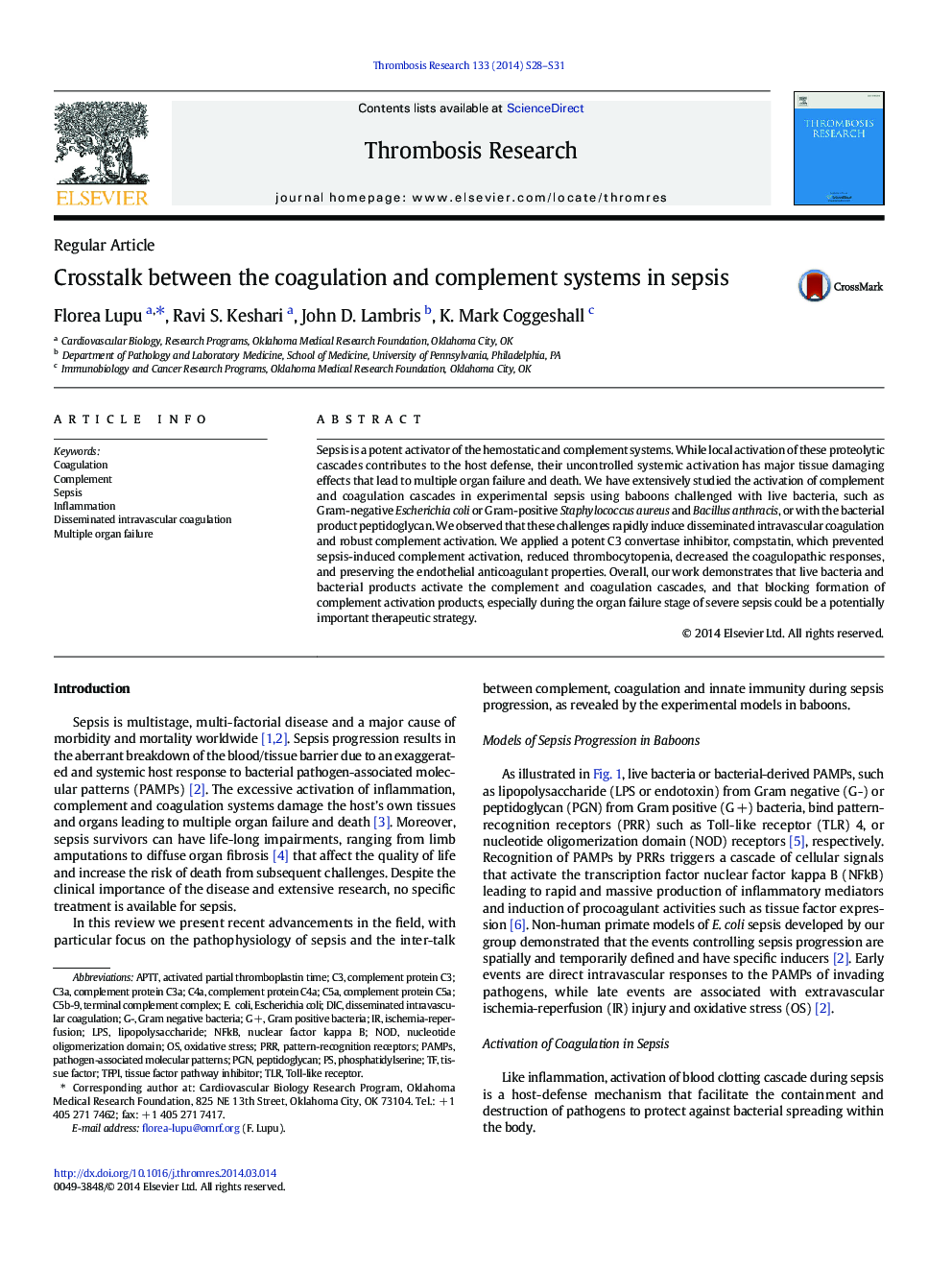| Article ID | Journal | Published Year | Pages | File Type |
|---|---|---|---|---|
| 3027444 | Thrombosis Research | 2014 | 4 Pages |
Sepsis is a potent activator of the hemostatic and complement systems. While local activation of these proteolytic cascades contributes to the host defense, their uncontrolled systemic activation has major tissue damaging effects that lead to multiple organ failure and death. We have extensively studied the activation of complement and coagulation cascades in experimental sepsis using baboons challenged with live bacteria, such as Gram-negative Escherichia coli or Gram-positive Staphylococcus aureus and Bacillus anthracis, or with the bacterial product peptidoglycan. We observed that these challenges rapidly induce disseminated intravascular coagulation and robust complement activation. We applied a potent C3 convertase inhibitor, compstatin, which prevented sepsis-induced complement activation, reduced thrombocytopenia, decreased the coagulopathic responses, and preserving the endothelial anticoagulant properties. Overall, our work demonstrates that live bacteria and bacterial products activate the complement and coagulation cascades, and that blocking formation of complement activation products, especially during the organ failure stage of severe sepsis could be a potentially important therapeutic strategy.
